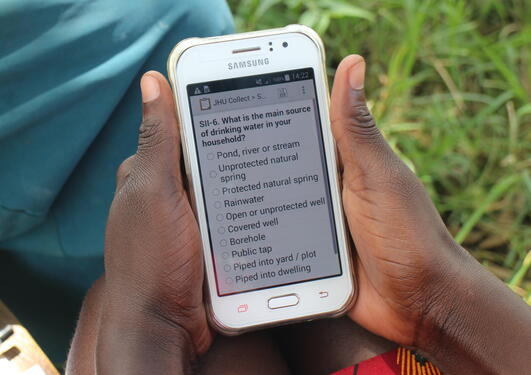SAFEWORKERS - developing a Virtual School of Occupational Health
Professors Bente E. Moen (CIH) and Magne Bråtveit (OEM) aim to develop a Virtual school of Occupational Health with their partners in Tanzania and Ethiopia.

Main content
Globally, millions of people work under difficult and hazardous conditions. In low-income countries (LIC), the number of worker injuries and diseases is particularly high, with significant long-term social consequences. However, effective interventions can prevent and avoid occupational hazards and protect worker health. Most worker injuries and diseases could be prevented through improved knowledge and education. In LIC, however, while industrial activity is increasing dramatically understanding about Occupational Health (OH) is poor. This important knowledge gap provides the motivation for our project.
Researchers at Muhimbili University of Health and Allied Sciences (MUHAS), Tanzania, Addis Ababa University (AAU), Ethiopia, and the University of Bergen (UiB) have collaborated in various research and capacity-building activities within OH since 2003. We would now like to expand our efforts, cooperating more closely with governmental organisations, disseminating results more widely, having a greater societal impact, and influencing policy development in these 2 countries and other countries in Sub-Saharan Africa (SSA).
Defining occupational health
There are several definitions of occupational health, but the one used most comes from WHO and the International Labour Organization (ILO):
“The promotion and maintenance of the highest degree of physical mental and social well-being of workers in all occupations.”
This definition sets a high, but attainable standard; we should work for the highest degree of physical, mental and social well-being of workers in all occupations.
While some OH courses are currently taught at MUHAS and AAU, the growing health burden in both countries underlines a great need for better training and trainers at both institutions to address both countries’ OH needs. The aim is to train local graduates who will be able to sustainably educate a cadre of OH specialists who will, in turn, serve in ministries, as policy makers, and as labour inspectors. These experts will also disseminate knowledge to employers and employees.
SAFWORKER project
The SAFEWORKERS NORHED II project aims to improve safety and health for workers in SSA through novel and expanded OH capacity development in higher education and research. It will undertake to establish a “Virtual School of Occupational Health”. The school will involve a co-operation between the three partner universities, with the purpose of developing online education in occupational health.
The education materials will be able to be used totally online or developed into a blended version with a mixture of online and on campus teaching. Such a virtual school will make it possible to teach in difficult times, such as when we have a pandemic, and it will be useful for reaching out with better education opportunities at the universities in the project as well as for universities elsewhere.
Primarily, the target groups for this teaching will be students at Master and PhD levels, as this is important for the capacity building at the universities involved. However, if the school is successful, also other target groups may be included in due time – such as arrangements of courses for employers and employees. Ongoing research will be integrated into the education programmes in Tanzania and Ethiopia, focusing in particular on intervention studies that will reduce workplace injuries and diseases for male and female workers.
Objectives
The main objective is to improve safety and health for workers in Sub-Saharan Africa (SSA) by novel capacity development in higher education and research in occupational health.
We have 8 specific objectives, and these are listed below with the target group described for each of them:
- Develop a Virtual school of Occupational Health (OH) for SSA, with online courses at Master’s and PhD level; first in Tanzania and Ethiopia, thereafter in other SSA countries.
- Improve Master curriculum/studies and training of Master students in Occupational Health on campus in Ethiopia and Tanzania
- Train PhD candidates in Occupational Health on campus in Ethiopia and Tanzania.
- Develop course curriculums in occupational health for medical students, and training medical students in occupational health in Ethiopia and Tanzania.
- Perform research in occupational health in Tanzania and Ethiopia, focus on intervention studies, aiming to reduce injuries and diseases at work.
- Develop infrastructure for research and teaching laboratories in occupational health in Tanzania and Ethiopia.
- Involve key stakeholders for Occupational Health in our research and training, for better impact from our project in the working life.
- Make working life better for women.
